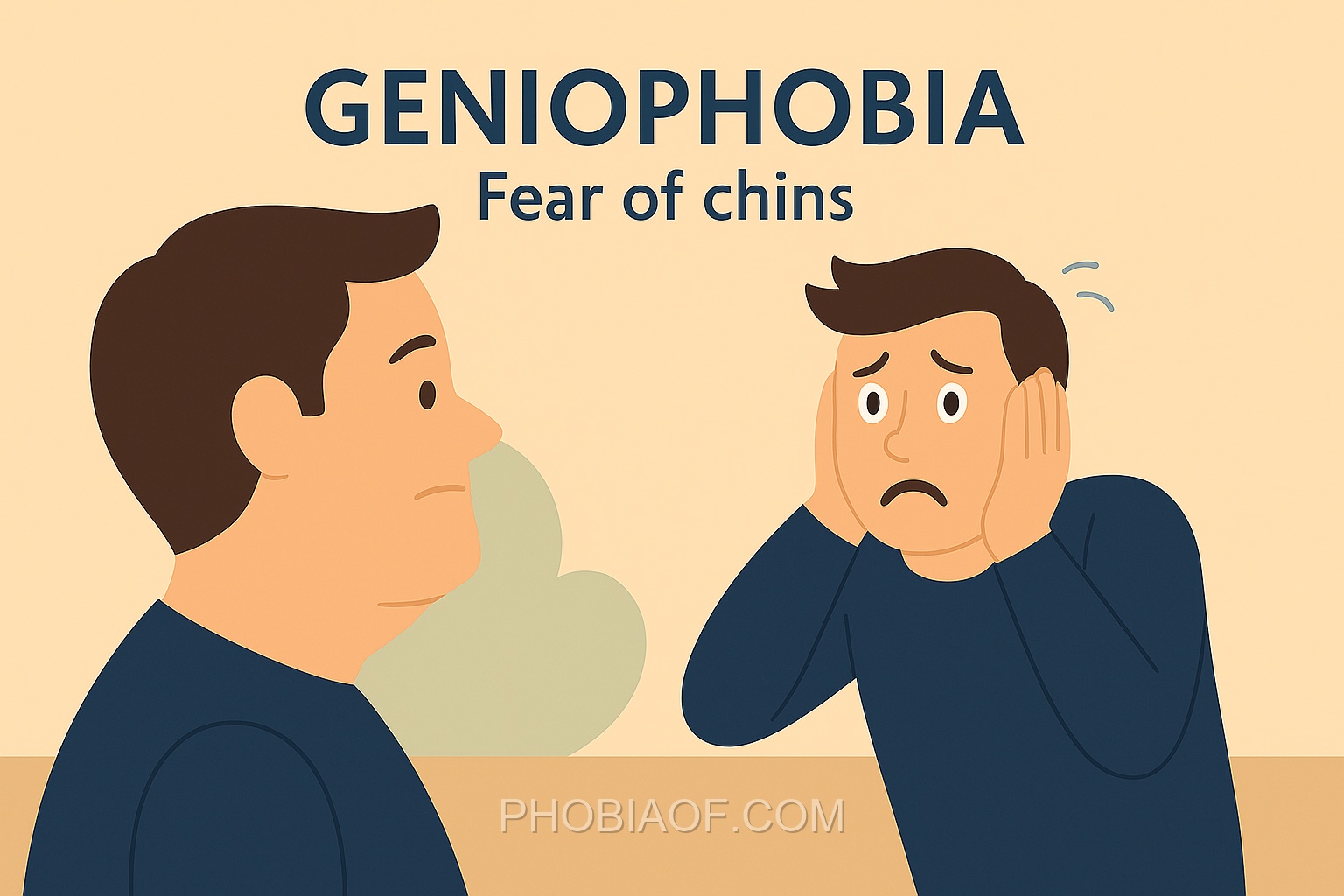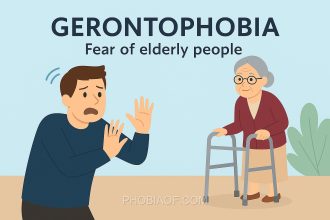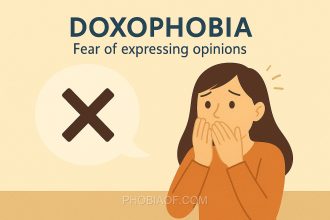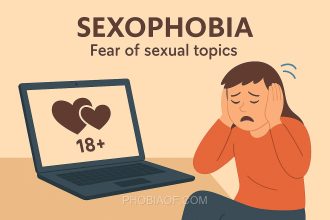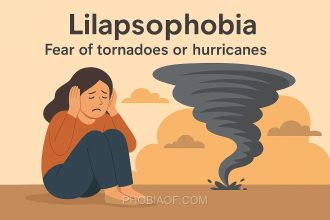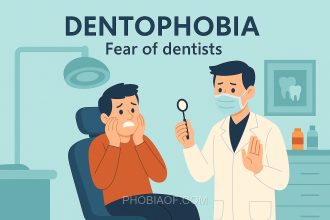Have you ever felt uneasy or anxious merely at the sight of someone’s chin? While it might sound unusual, this is a genuine fear known as Geniophobia. In clear, everyday language, geniophobia is the fear of chins. This phobia might seem perplexing to many, but for those who experience it, the fear is real and can be quite distressing.
The term Geniophobia is derived from the Greek word “genio,” meaning chin, and “phobia,” meaning fear. Like many other phobias, it can significantly impact a person’s life, influencing their social interactions and emotional well-being.
For individuals with geniophobia, this fear can manifest in various ways:
- They might avoid social situations where they would be confronted with multiple chins, feeling overwhelmed or anxious.
- Engaging in conversations might become challenging if they are fixated on the other person’s chin.
- This phobia can also lead to avoidance behaviors, where individuals might steer clear of certain people or situations altogether.
Understanding geniophobia with compassion is essential. It reminds us of the vast spectrum of human anxieties and the unique challenges each individual may face. By fostering awareness, we can create a more supportive environment for those dealing with such fears.
Causes of Geniophobia
Geniophobia, or the fear of chins, is a relatively uncommon phobia that can cause significant distress to those who experience it. Understanding the potential causes of geniophobia can help in managing this fear effectively.
There are several potential factors that might contribute to the development of geniophobia:
- Genetic Predisposition: Some individuals may have a genetic tendency to develop phobias. If there is a history of anxiety disorders or specific phobias in the family, a person might be more susceptible to developing geniophobia.
- Traumatic Experiences: A past traumatic event involving chins or a situation where chins were a focal point might trigger this phobia. For example, an unpleasant encounter or ridicule related to someone’s chin could lead to a lasting fear.
- Learned Behavior: Observing others with a fear of chins can influence an individual to adopt a similar fear. This learned behavior can occur within families or social groups, where phobias might be inadvertently passed down.
- Psychological Factors: Underlying anxiety or other psychological issues can sometimes manifest as specific phobias. For some, geniophobia could be an expression of broader anxiety disorders.
- Environmental Factors: Cultural influences or societal standards regarding appearance might also play a role. For instance, if certain facial features are negatively portrayed in media, it might contribute to developing a fear of those features.
Interestingly, some theories suggest that phobias like geniophobia could be a result of evolutionary processes, where an exaggerated fear response to certain stimuli might have once been advantageous for survival. However, in modern contexts, such fears can become maladaptive.
While the exact cause of geniophobia can vary from person to person, understanding these potential influences can be the first step towards addressing and managing the fear. If geniophobia significantly impacts daily life, seeking professional help from a mental health expert can provide pathways to effective treatment.
Symptoms of Geniophobia
Geniophobia, the intense fear or anxiety associated with chins, can significantly impact a person’s life. This phobia manifests through various physical and emotional symptoms, which can be distressing and challenging to manage. Recognizing these symptoms is the first step towards understanding and addressing them.
- Intense Fear or Anxiety: Individuals with geniophobia often experience overwhelming fear or anxiety when thinking about or encountering chins.
- Panic Attacks: Exposure to triggers may lead to panic attacks, characterized by a sudden onset of fear and physical symptoms.
- Sweating: Excessive sweating, particularly in social situations where chins are visible, is a common physical symptom.
- Rapid Heartbeat: A noticeable increase in heart rate can occur when faced with the object of fear.
- Shortness of Breath: Difficulty breathing or a feeling of suffocation may accompany the anxiety.
- Shaking or Trembling: Visible trembling or shaking can be a response to severe anxiety.
- Avoidance of Triggers: Individuals may go to great lengths to avoid situations where they might see or think about chins.
- Overwhelming Dread: A persistent sense of dread or unease can dominate thoughts and emotions.
- Feelings of Helplessness: People may feel powerless to control their fear or anxiety.
When geniophobia is severe, these symptoms can interfere with daily life, affecting personal relationships, work, and overall wellbeing.
Treatment for Fear of Chins (Geniophobia)
It’s important to know that geniophobia, like many specific phobias, can be effectively treated and managed over time. With the right approach, you can overcome this fear and lead a more comfortable, fulfilling life.
Proven Therapies
- Exposure Therapy:
This therapy involves gradually exposing yourself to the object of your fear—in this case, chins. By slowly and repeatedly facing the fear, you can reduce your anxiety response over time. This process is typically done with the guidance of a trained therapist who can help ensure it is done safely and effectively.
- Cognitive-Behavioral Therapy (CBT):
CBT focuses on identifying and changing negative thought patterns associated with your fear. By learning to replace fearful thoughts with more balanced perspectives, you can decrease the intensity of your phobic reactions.
- Counseling:
Speaking with a mental health professional can provide support and guidance as you work through your fear. Counseling can be an effective way to explore underlying issues contributing to the phobia and develop personalized coping strategies.
Self-Help Coping Techniques
- Relaxation Exercises:
Practices such as deep breathing, progressive muscle relaxation, and visualization can help reduce anxiety symptoms and make facing fears more manageable.
- Meditation:
Regular meditation can help calm your mind and improve your ability to handle stress, which can be beneficial in managing phobic reactions.
- Support Groups:
Joining a support group can provide a sense of community and understanding. Sharing experiences and strategies with others who have similar challenges can be very reassuring.
Medication
In severe cases, medication such as anti-anxiety medications might be prescribed to help manage symptoms. However, it is generally recommended that therapy and coping skills be the primary focus for long-term management of the phobia.
If geniophobia is interfering with your daily life, it’s crucial to seek professional help. A mental health expert can work with you to develop a treatment plan tailored to your needs. Remember, overcoming a phobia is a journey, and taking the first step by seeking help is a significant achievement.
Conclusion
In conclusion, understanding the causes and symptoms of geniophobia can significantly empower individuals to address and manage this unique fear. By recognizing the underlying factors contributing to the phobia, individuals are better equipped to confront their anxieties and seek appropriate support.
It’s important to remember that many people successfully overcome or manage their phobias with time and the right help. If geniophobia is affecting your life, consider reaching out to a therapist or talking to a doctor. Professional guidance can provide you with strategies and tools to cope effectively.
Take heart in knowing that you are not alone, and with determination and support, it is possible to lead a life free from the constraints of fear. Embrace this opportunity to seek help and take steps towards a more confident and empowered version of yourself.
